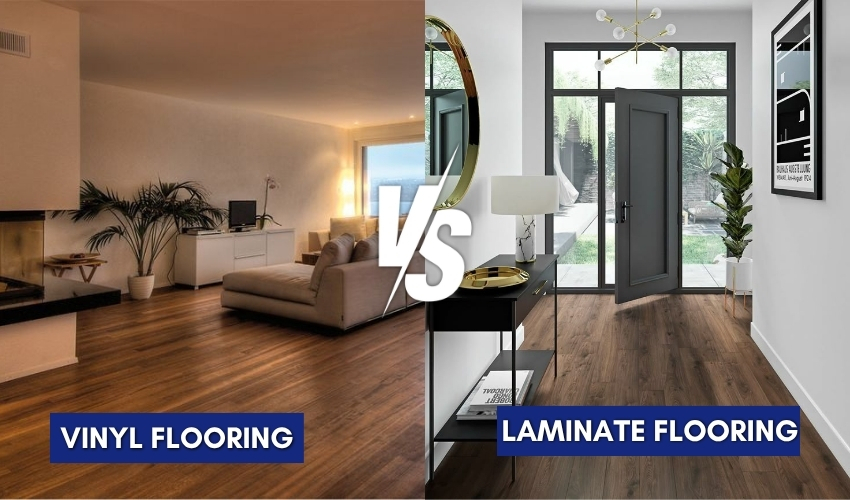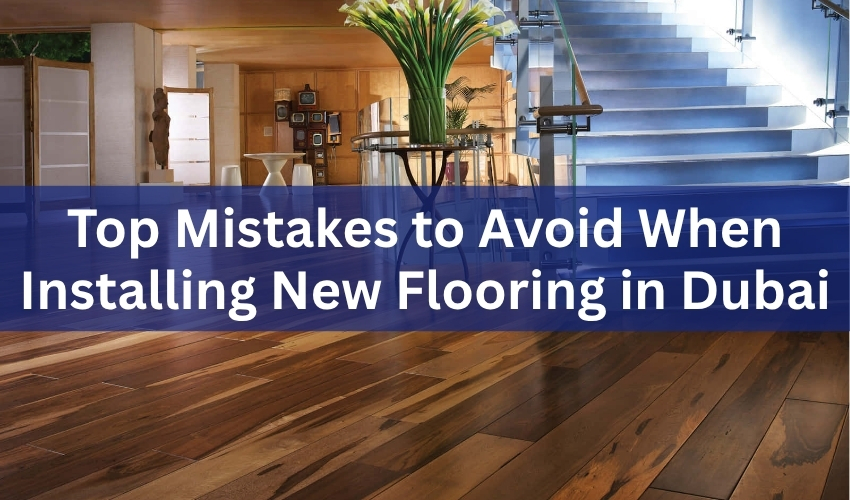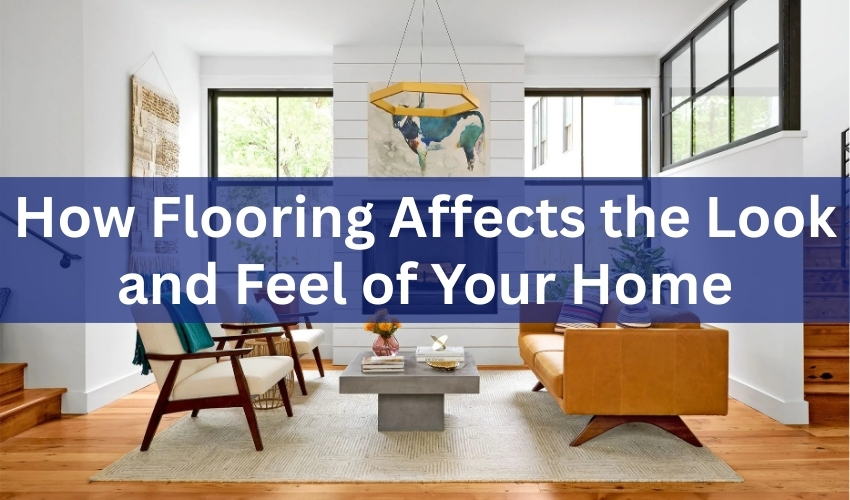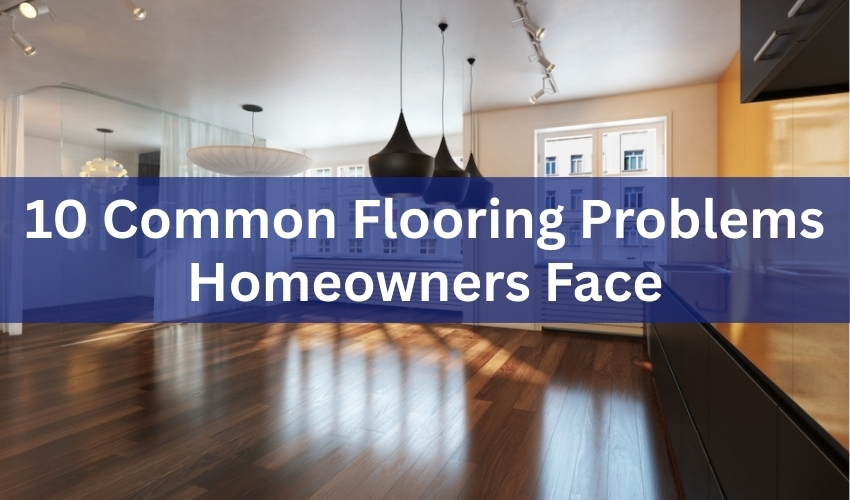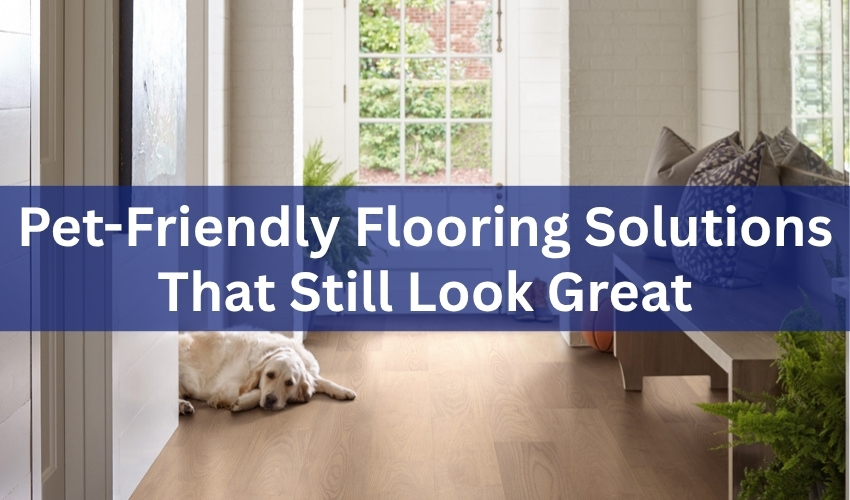The right flooring is essential for maintaining both the functionality and aesthetic appeal of your space. These days, Vinyl and Laminate are the most popular options, known for their durability, affordability, and stylish appearance. Here, the question is vinyl vs. laminate – which is the better choice?
So this blog post will explain the difference between these two in detail. Ultimately, it will help you find the ideal flooring in Dubai for any home, office, or commercial space. Let’s start the discussion.
Key Differences Between Vinyl vs. Laminate Flooring
Below are some key differences between vinyl and laminate floors. Read them very carefully to make an informed decision.
1. Composition
Vinyl is a popular flooring option for homes, workplaces, and industrial spaces. It is composed of resilient synthetic materials like PVC, plasticizers, resins, and stabilizers. It resembles wood or stone and gives it a more realistic look. Vinyl sheets, LVP (luxury vinyl planks), and LVT (Luxury vinyl tiles) are some types of vinyl flooring Dubai.
Laminate is a stylish and durable flooring solution. It is also composed of resilient material, the HDF (high-density fiberboard). It is available in plank style only. Due to its multiple-layer structure, laminate is ideal for high-traffic areas.
2. Look And Feel
Both flooring options are similar in appearance, as they mimic the look of stone, wood, and tile. Laminates closely resemble the LVP, but the only difference is the core layer. Wood fibers are combined with resins to form a thick and stable core layer in laminated floors. While walking, it feels denser and harder underfoot as compared to vinyl.
3. Durable And Scratch Resistant
The wear layer of both flooring options makes them durable and scratch-resistant. The UV-treated layer offers protection against dents, scuffs, and scratches. The upper layer of laminate floors is thicker, making them more durable and scratch-resistant than vinyl flooring. If you have pets and children in your home, then laminate is the best choice.
4. Cost
Vinyl is one of the most budget-friendly flooring solutions for residential and commercial interiors. They are less expensive than a traditional hardwood floor, depending on their quality and style. As compared to the laminate, vinyl sheets are more pocket-friendly. When we talk about laminate floors, it is also a cheaper option than luxury flooring materials. But it is a bit more expensive than vinyl.
5. Installation
Both flooring options are easy to install, which is the most attractive point for DIY lovers. Various methods can be used to install vinyl floors. Peel-and-stick, click-lock, and loose-lay methods are common. You can install them on the existing floor.
Laminate planks are also known as floating floors because of their click-lock system. It needs a prepared subfloor before installation to avoid any structural damage. The planks are interlocked from edge to edge without using glue, any adhesive, or nails.
Hence, the installation of a laminate floor is expensive due to the high labor costs. It needs detailed preparatory work and precise cutting compared to vinyl. It also takes more time to achieve the proper and flawless fixation.
6. Water Resistance
Vinyl floors are made of 100% synthetic materials, making them waterproof. They resist water more efficiently than laminate floors. Properly installed vinyl planks are considered the best flooring solution in moisture-prone areas. These include kitchen, bathroom, and poolside areas.
Laminate flooring Dubai, on the other hand, consists of fiberboard that can be affected by high moisture conditions. It swells, warps, and buckles if exposed to prolonged moist conditions. Laminate floors are best suited for low-moisture areas, such as bedrooms, dining rooms, and offices. They can tolerate the moisture for a short period. So, make sure to clean spills immediately to protect it from damage.
7. Heat Resistant
Both floorings can tolerate extreme hot weather conditions, but the vinyl is more heat-resistant than the laminate. Some high-quality vinyls, like LVP (Luxury vinyl planks), can withstand heat for many years. That is why it is recommended for areas with a hot climate. Meanwhile, laminate planks may develop gaps, which can cause buckling.
8. Care And Maintenance
Vinyl floors are easier to maintain due to their non-porous and water-resistant properties. Daily cleaning with a broom or a vacuum cleaner can maintain its look for a longer period. For spills and stain removal, you can use the moist mop or use mild detergent. It is suitable for all places where daily cleaning is a significant concern.
Laminate floors require more care and attention to clean spills and prevent moisture damage. You need to clean the dirt and debris frequently with a vacuum cleaner or a broom. Avoid using a wet mop or cloth to clean up spills, as it may cause buckling.
Conclusion
At the end, you can say that both Vinyl and Laminate are of equal importance. Your style, space needs, and preferences will decide which one is the best fit for you. Vinyl has the edge over laminate floors due to its versatile applications in both indoor and outdoor settings. LVT and LVP are best for moisture-prone areas like laundry rooms, bathrooms, and kitchens. Whereas laminate Planks are best suited for dry areas, such as bedrooms, dining rooms, and living rooms.

